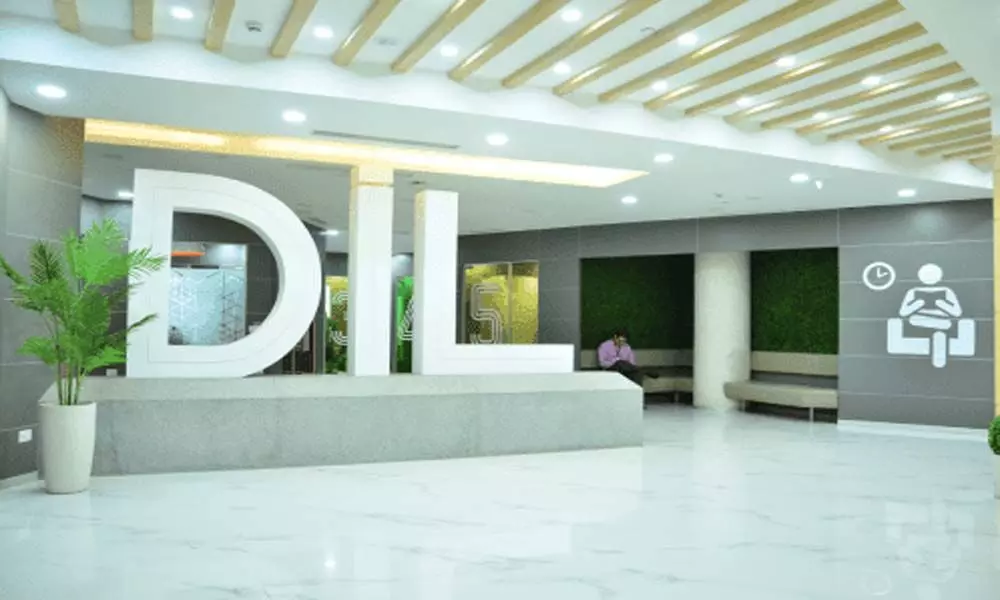After Zomato, DIL may be next blockbuster
Quick service restaurant chain Devyani International Ltd created its own brands under 'Vaango' which operates restaurants under the popular South Indian delicacies
image for illustrative purpose

Devyani International Limited is a QSR (quick service restaurant) chain, which is tapping the capital markets with its fresh issue for Rs 440 crore and an offer for sale of 15,53,33,330 equity shares in a price band of Rs 86-90. The issue has opened on Wednesday the 4th of August and would close on Friday the 6th of August. The issue has received excellent response and was oversubscribed on day one itself.
The company is the largest franchisee of Yum brands in India which was the spun off entity from PepsiCo USA. Incidentally the group headed by Ravi Jaipuria is the master franchisee for Pepsi and is its bottler under the listed entity Varun Beverages.
Devyani International Ltd (DIL) has been in the business of running QSR's from not only Yum Foods but also Costa Coffee and has created its own brands under 'Vaango' which operates restaurants under the popular South Indian delicacies. DIL also has international operations in running KFC outlets (34) and Pizza Hut (3) in Nigeria and Nepal. Incidentally DIL is the sole franchisee for KFC in Nigeria and for KFC and Pizza Hut in Nepal.
DIL employs a cluster approach so that there can be better coordination and higher efficiencies in store management and maximisation of profits. They also use locations where you have one Restaurant on say the ground floor and the other on the first floor. This attracts customers and they have a choice as well, where Pizza and KFC are both available either up and down or in a mall side by side.
Covid-19 has affected the QSR business quite badly and there have been key learnings for different people. DIL has learnt that the way forward would see smaller stores and take away facilities driving business. Accordingly, they have reformatted the Pizza Hut layout and are scaling down stores from the earlier 2000 sq feet format to 600-800 ft format and increasing their presence by having more outlets. This would reduce costs, increase penetration and make the brand more effective and ultimately profitable. DIL is pursuing an aggressive policy of opening new stores and even during the pandemic has added new stores. The store count which was at 610 at the end of FY20 has moved up to 692 at the end of March 21. Coming to the core brands, the most popular one is KFC. As the name suggests the top selling product of this format is the fried chicken and roughly two-third of the total revenues of KFC come from here. If one were to add the other chicken offerings of KFC like burgers and rice, the contribution from chicken would be in the region of 75-80 per cent. In the fried chicken category, there is no competition while in the burger and rice we have competition from the likes of McDonalds and Burger King. The gross margins enjoyed are in the range of 66-68 per cent and are moving up to touch the 70 per cent mark. There are 264 KFC outlets and the same store growth witnessed in the fourth quarter of FY21 was 20 per cent.
The second brand is Pizza Hut which has 297 stores and enjoys gross margins of between 74-76 per cent. The brand reported revenues of Rs 288 crore in FY21 and the fourth quarter of FY21 saw revenues of Rs 103 crore. The third brand is Costa Coffee which has 44 stores across 17 cities. The stores had revenues of Rs 21 crs in FY21 of which Rs 8.5 crore came from the fourth quarter. Gross margins are between 77-79 per cent. The broad terms of agreement between the brand owner and franchisee stipulate, store license of 10 years and a renewal of 10 years. Royalty is 6.3 per cent of revenue. Marketing contribution is 5 per cent to the international brand owner and 1 per cent is to the local company. Initial fees are $53,400 per store for KFC outlet which is reduced to half after ten years during renewal. In the case of Pizza Hut, the initial fee per store is $26,700 which is reduced to half after 10 years. At a company level, DIL has been reporting losses and is yet to make net profits. The total income for the year ended March 21 was around Rs 1,200 crore, with a net loss of Rs 63 crore. As this is a loss-making company currently, there is no EPS or PE to be computed.
Looking at the recent success of Zomato which is a delivery platform only, and is a massive loss-making company, yet enjoys an unprecedented valuation of over Rs 1.1 lakh crore, there is expectation of this becoming another blockbuster issue. Retail investors should apply for the issue as the management has the experience and has been in this business for a very long time. The change in strategy which includes smaller stores and targeting shorter delivery time, would help the company to turn positive in the near future. With assured listing pop, lucky investors who are allotted shares would gain. While currently the retail portion is already subscribed over 16 times, one could expect this issue in retail to get subscribed around 26-28 times. Post applications being cancelled and rejected, it would still mean a lottery of one successful applicant out of 25.
(The author is the founder of
Kejriwal Research and Investment Services, an advisory firm)

